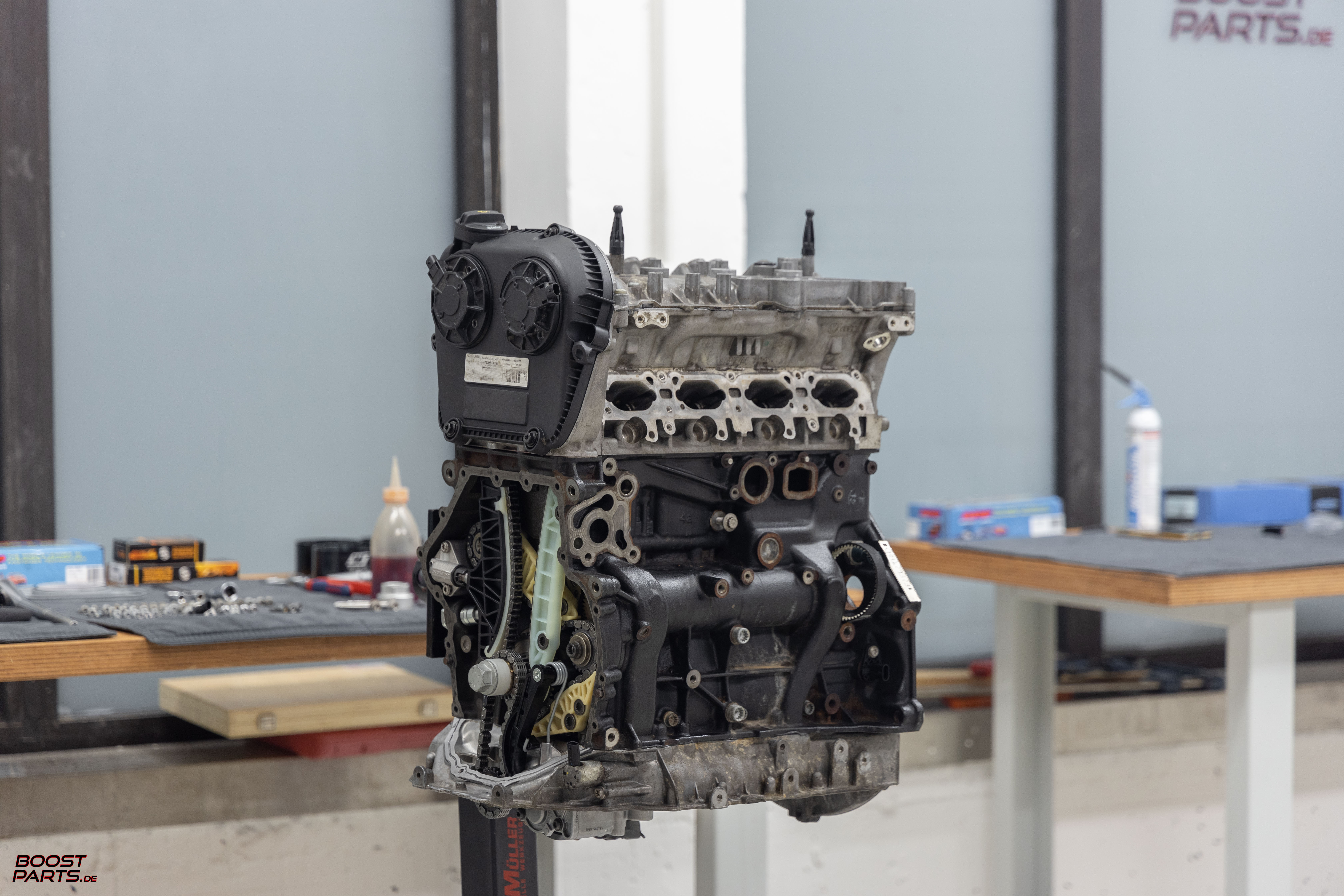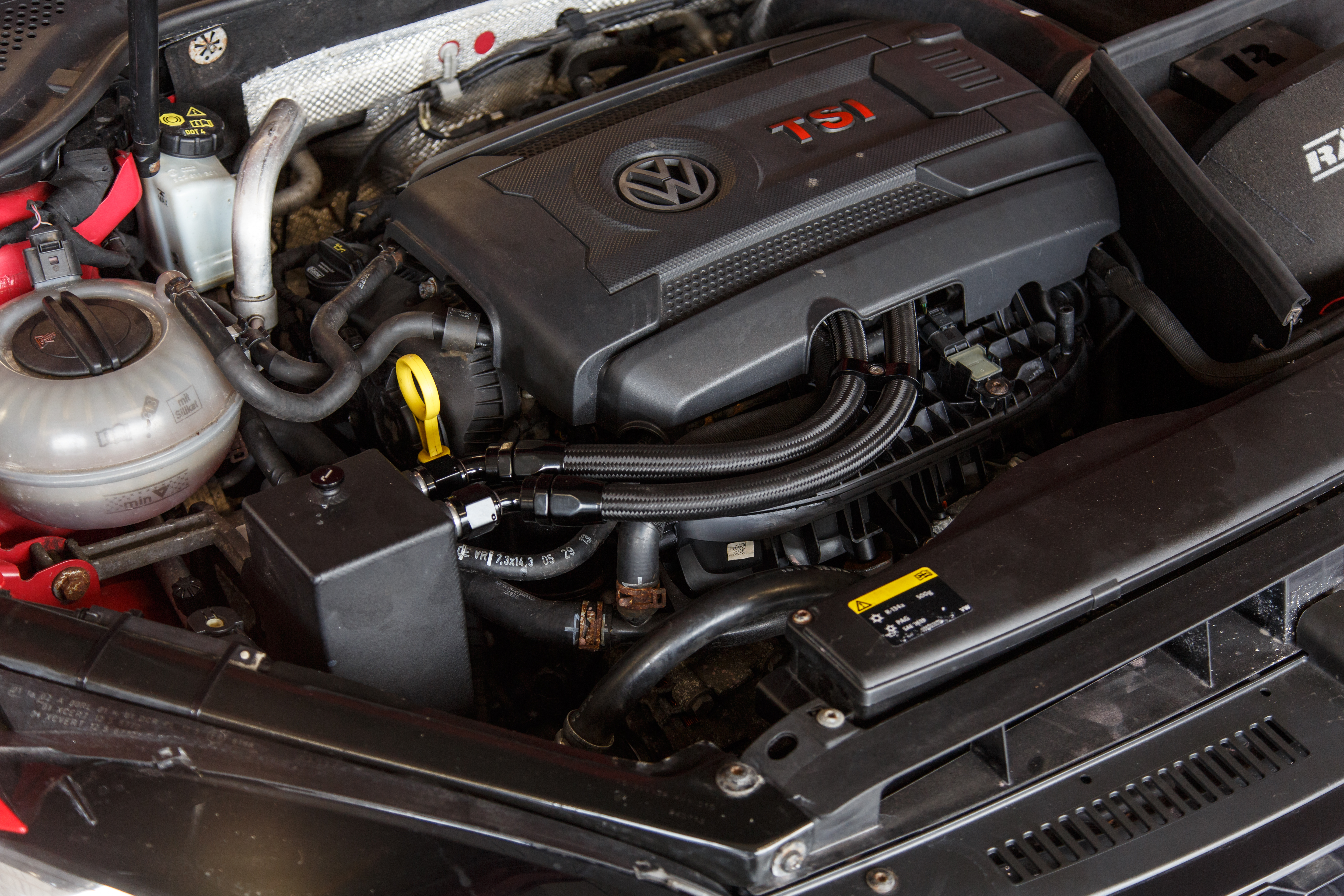Your Overview to the Golf 7 GTI Engine: Dependability and Upgrades
The Golf 7 GTI, equipped with its 2.0-liter turbocharged inline-four engine, represents a balance of performance and reliability that charms to fanatics and daily motorists alike. Checking out different efficiency upgrades can significantly boost both power and performance.
Introduction of the Golf 7 GTI Engine
The heart of the Golf 7 GTI is its 2.0-liter TSI engine, a turbocharged four-cylinder that delivers an impressive mix of power and performance. This engine creates a durable 220 horse power and 258 lb-ft of torque, enabling the car to speed up from 0 to 60 mph in just 5.6 seconds, showcasing its sporty personality. The turbocharged layout not only enhances efficiency but additionally maximizes gas efficiency, making it a useful selection for daily driving.
Including innovative technology, the engine features straight gas shot, which enhances combustion efficiency and minimizes emissions. Additionally, the Golf 7 GTI is outfitted with either a six-speed handbook or a six-speed DSG dual-clutch automated transmission, giving motorists with the versatility to choose their liked driving style. The car's front-wheel-drive layout, incorporated with a well-tuned suspension, guarantees active handling and a responsive driving experience.
Engine Reliability Factors
Reliability is an essential element of any kind of performance-oriented car, and the Golf 7 GTI's engine is no exemption. Several aspects add to the total integrity of this very regarded powerplant, which is important for both everyday driving and perky performance.
First Of All, the Golf 7 GTI is equipped with a robust 2.0-liter turbocharged inline-four engine, understood for its reliable design and strong design. This engine includes a created steel crankshaft and light weight aluminum engine block, which give exceptional strength and toughness while reducing weight.
Secondly, regular maintenance plays an important role in improving engine reliability. Abiding by the maker's recommended service periods, utilizing high-quality lubes, and changing necessary elements such as trigger filters and plugs can significantly prolong engine life.
Furthermore, the quality of fuel used can likewise influence reliability. Costs fuel is advised to make sure optimum efficiency and decrease the risk of knocking or ignition.
Last but not least, the car's electronic monitoring system continually keeps track of engine parameters, enabling for real-time changes to enhance efficiency and efficiency while securing against prospective concerns. Collectively, these factors emphasize the Golf 7 GTI engine's credibility for integrity among lovers and everyday vehicle drivers alike.
Typical Problems and Solutions
The Golf 7 GTI, while celebrated for its performance, is not without its obstacles. Amongst one of the most regularly reported problems are engine oil usage and turbocharger failures, which can considerably impact car reliability. Understanding these typical problems and their remedies is important for keeping ideal engine performance.

Engine Oil Usage
While numerous enthusiasts value the performance of the Golf 7 GTI, engine oil consumption can emerge as a remarkable concern. Owners may observe that their automobiles require even more frequent oil top-ups than anticipated, frequently attributed to various factors fundamental in the engine's layout and operation.
One typical issue is the engine's straight gas shot system, which can lead to increased oil intake due to the combustion process. Additionally, the usage of high-performance driving habits can intensify oil burn-off, particularly under hostile throttle problems. Drivers may also experience oil leakages from seals and gaskets, which can contribute to reduced oil levels.
Regular oil modifications utilizing top quality artificial oil can aid preserve ideal engine performance and durability. If excessive intake continues, it might be suggested to seek advice from a professional technician to evaluate the engine for prospective internal problems, such as used piston rings or shutoff seals.
Turbocharger Failings
Turbocharger failures can substantially affect the performance of the Golf 7 GTI, bring about decreased power and performance. Common problems connected with the turbocharger include oil leaks, wastegate failure, and too much shaft play. Oil leakages typically come from used seals or damaged gaskets, which can lead to oil contamination and subsequent engine damages. Consistently checking these parts can help determine and alleviate such concerns early.
An additional common issue is wastegate failing, which can result in overboost or underboost conditions. If left unattended, this not only affects the car's efficiency but can additionally lead to serious engine damage. Upgrading to a more robust wastegate can enhance reliability and performance.
Extreme shaft play suggests wear in the turbocharger's bearings, which can lead to a total turbo failing. Keeping an eye on increase stress and paying attention for uncommon noises can help detect this trouble early.
To protect against turbocharger failures, normal maintenance, including oil modifications and air filter replacements, is important. Additionally, purchasing top notch aftermarket parts may give enhanced integrity and performance, inevitably enhancing the driving experience of the Golf 7 GTI.
Efficiency Upgrades to Think About
What efficiency upgrades can absolutely raise the driving experience of a Golf 7 GTI? To unleash the full potential of this iconic warm hatch, numerous targeted alterations can enhance power, handling, and total driving satisfaction.
Among one of the most efficient upgrades is a high-performance turbocharger. Changing the stock system with an aftermarket alternative can substantially boost horsepower and torque, providing an extra thrilling velocity experience. Matching this upgrade with a performance intercooler aids maintain optimum temperature levels, guaranteeing consistent power shipment.
Next, consider upgrading the exhaust system. A much less restrictive exhaust not only boosts engine effectiveness however likewise creates a much more aggressive audio that enhances the car's flashy character. Coupling this with a remapped ECU will certainly maximize fuel distribution and ignition timing, additional boosting efficiency.
Suspension upgrades, such as flexible coilovers, can boost taking care of by reducing the vehicle's center of mass and lowering body roll. In addition, a collection of high-performance tires will improve grasp, permitting sharper cornering and enhanced general security.
With each other, these upgrades can transform the Golf 7 GTI into a much more exhilarating and vibrant driving maker, making every journey a memorable experience. golf 7 official site gti engine.
Advised Maintenance Practices
Preserving the Golf 7 GTI engine calls for focus to vital methods that ensure optimum efficiency and longevity. Routine oil modifications are crucial for engine health, while timely timing belt substitute is crucial to avoid possible failures. Applying these upkeep practices will help keep your vehicle running smoothly and successfully.
Normal Oil Adjustments
Regular oil modifications are necessary for the optimum performance and long life of the Golf 7 GTI's engine. Preserving a regular oil adjustment routine ensures that the engine operates efficiently and efficiently. The recommended interval for oil adjustments is generally every 5,000 to 10,000 kilometers, depending on driving problems and the sort of oil utilized.
Utilizing top quality artificial oil is crucial as it offers premium lubrication and thermal stability compared to traditional oils. This is especially vital for the Golf 7 GTI, which features a turbocharged engine that creates higher operating temperature levels. Normal oil changes aid to eliminate contaminants and sludge buildup, which can jeopardize engine performance and bring about premature wear.
Furthermore, fresh oil enhances gas performance and minimizes hazardous exhausts, adding to a cleaner atmosphere. During the oil adjustment procedure, it is also suggested to replace the oil filter to make certain optimal filtration and protect against any kind of particles from going into the engine. discover this Adhering to these methods not only helps preserve the engine's stability yet also protects the value of the vehicle, making normal oil transforms a vital element of accountable GTI possession.
Timing Belt Replacement
The timing belt is a critical part of the Golf 7 GTI's engine, in charge of synchronizing the turning of the crankshaft and camshaft. This synchronization is crucial for ideal engine performance and effectiveness. If the timing belt stops working, it can bring about catastrophic engine damage, making timely replacement essential.

When planning a timing belt replacement, it is suggested to also change the water pump and tensioner. These components work in conjunction with the timing belt and typically experience similar wear, making certain optimum efficiency and long life. Utilizing OEM parts is advised for their reliability and compatibility with the Golf 7 GTI's engine.
Professional setup is highly encouraged, as incorrect installation can bring about extreme engine breakdowns. Normal upkeep of the timing belt not just safeguards the integrity of the engine yet also boosts the total driving experience of the Golf 7 GTI. golf 7 gti engine. Prioritizing this job helps maintain automobile integrity and efficiency gradually
Aftermarket Parts and Modifications
Numerous lovers turn to aftermarket parts and alterations to enhance the efficiency and looks of the Golf 7 GTI. These upgrades can considerably improve the vehicle's responsiveness, handling, and total driving experience. Popular adjustments consist of high-performance air intakes, exhaust systems, and intercoolers, which can increase horsepower and torque by enhancing air consumption and exhaust circulation.
Suspension upgrades are also widespread, with options ranging from reducing springs to totally adjustable coilover kits that boost adventure top quality and cornering ability. Upgraded brakes, consisting of performance pads and blades, can supply far better stopping power, guaranteeing safety and security and control throughout perky driving.
Visual adjustments, such as aftermarket wheels, body packages, and custom-made lights, enable owners to personalize their cars while maintaining a stylish look. Engine tuning, whether through ECU remapping or standalone engine monitoring systems, can open added efficiency potential, making the GTI a lot more electrifying read what he said to drive.
While aftermarket adjustments can yield considerable advantages, it's vital to pick trusted brands and take into consideration the prospective impact on warranty and dependability. Appropriate installation and tuning are important to ensure the durability of the vehicle while taking pleasure in the improvements.
Enhancing Fuel Performance
Improving gas performance in the Golf 7 GTI can result in considerable expense financial savings and a lowered environmental impact. Accomplishing much better fuel economy requires a combination of driving practices, maintenance methods, and critical alterations.
One efficient technique is adopting a smooth driving style, avoiding quick acceleration and hefty stopping, which can substantially lower gas consumption. Keeping ideal tire stress is likewise crucial; under-inflated tires can raise rolling resistance, leading to decreased performance. Routine servicing, consisting of engine tuning and air filter replacements, makes certain that the engine runs at peak performance, better improving fuel economic climate.
For those seeking upgrades, take into consideration an efficiency tune that concentrates on effectiveness as opposed to sheer power. Eco-mode setups, if offered, can adjust throttle reaction and change indicate make the most of gas financial savings. Additionally, lightweight aftermarket wheels can lower weight and enhance performance without jeopardizing efficiency.
Finally, employing aerodynamic improvements, such as a front splitter or rear spoiler, can lower drag at higher rates, adding to much better fuel economic situation. By carrying out these modifications and approaches, Golf 7 GTI proprietors can enjoy improved fuel performance while preserving the automobile's perky driving qualities.
Verdict
Finally, the Golf 7 GTI engine exemplifies a mix of performance and dependability, driven by a well-engineered 2.0-liter turbocharged inline-four. Understanding of common concerns, such as oil usage and turbocharger failures, together with adherence to recommended maintenance techniques, is necessary for longevity. Furthermore, numerous efficiency upgrades and aftermarket alterations can enhance driving experience while keeping dependability. Ultimately, mindful interest to both maintenance and enhancement strategies makes sure the Golf 7 GTI remains a competitive option in the auto market.
The Golf 7 GTI, outfitted with its 2.0-liter turbocharged inline-four engine, represents an equilibrium of efficiency and integrity that allures to fanatics and daily motorists alike. Regular oil modifications utilizing top quality artificial oil can help keep optimum engine performance and longevity.Routine oil changes are essential for the optimum efficiency and longevity of the Golf 7 GTI's engine. Normal servicing, consisting of engine tuning and air filter replacements, makes sure that the engine operates at peak efficiency, further boosting gas economic climate.
